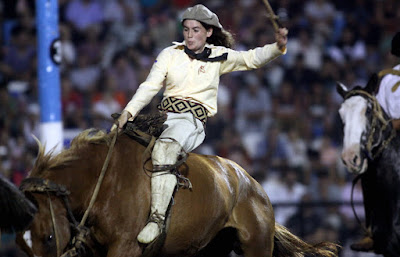LA PROPUESTA DE KISSINGER PARA UCRANIA
Kissinger tiene razón: castigar a Putin no va a ayudar a Ucrania
Por Bruce Anderson
Nota original: https://reaction.life/kissingers-right-punishing-putin-wont-help-ukraine/
Nota original en inglés al pie.
Traducción: Hyspasia
Nota de la traductora: Es un artículo publicado en un medio conservador inglés, Reaction, con una clara posición pro ucraniana y pro norteamericana, contraria a Rusia y acérrima enemiga de su presidente, Vladimir Putin. Lo hemos traducido para mostrar el cambio de postura (al menos en público) de quienes hasta no hace más de dos semanas atrás envalentaban al comprometido régimen ucraniano en una confrontación de resultado reservado. Pareciera que la aparición pública del ex funcionario Kissinger les muestra una salida elegante de este berenjenal.
En Gran Bretaña y en los EEUU, la invasión a Ucrania ha llevado a una disputa sobre geopolítica. Pareciera que está ganando la facción equivocada. Los contendientes son Henry Kissinger y Skibbereen Eagle. En 1898, el editor del diario Skibbereen Eagle, Frederick Potter, advirtió al Zar de todas las Rusias que su Águila (Eagle) tenía sus ojos puestos en él. A Potter le gustaba señalar con el dedo a los emperadores: una empresa inofensiva, en aquellos días en que la libertad de expresión era garantizada por el Imperio Británico y la Marina Real.
Ahora, de todas formas, no se trata de un irlandés declarando sobre temas internacionales. Un montón de gente en Occidente, quienes jamás escucharon hablar del Skibbereen Eagle son sus herederos políticos. Ellos también creen en agitar los dedos índices. En ese espíritu, todos piden que Rusia sea humillada: que se la eche de Crimea y que pierda los territorios del Donbass, los cuales domina desde el 2014. Es fácil entender por qué la gente reacciona de esa manera. Las fuerzas ucranianas han efectuado una magnífica muestra de coraje y galantería. En cuanto al sufrimiento infligido a los civiles - son demasiado horribles para ser contemplados. Rusia merece ser castigada por su brutalidad, mientras que los héroes de Ucrania deberían disfrutar de las delicias del Valhalla.
Así hablan muchos que privilegian sus emociones. Como resultado, sus conclusiones son irrelevantes. Es tiempo de apagar las emociones y prender la realidad y tomar el consejo que da el gran maestro contemporáneo del realismo, Henry Kissinger.
Sus conclusiones son fáciles de resumir. Es casi imposible para Ucrania vencer a Rusia, lo que está bien. Una Rusia humillada igual seguirá en posesión de armas nucleares, el uso de las cuales es parte de la doctrina militar rusa. Un intercambio nuclear [un conflicto nuclear] es improbable. El resultado más probable es un conflicto demoledor: el punto a focalizar es una Nueva Guerra Fría. La disrupción de suministros alimenticios puede llevar a hambrunas e inestabilidad en las regiones más pobres del planeta. Entre otras cosas, puede significar un renacimiento de la militancia islámica. También provocará inflación en Occidente, fortaleciendo fuerzas políticas maléficas (sic).
En Ucrania, la lista de víctimas crece, si bien eso no reduce la cantidad de voluntarios. Si hay una traducción al ucraniano de dulce et decorum est pro patria mori, los jóvenes ucranianos estarían entonándola mientras caminan al frente de batalla. Pero sería mejor que esa energía juvenil se aplicara a reconstruir el país, mientras sus padres son ahorrados de la necesidad de velarlos mientras ruegan que exista un Valhalla, más allá de los cielos. Se equivocan aquellos en Occidente que desafían la cautela y alientan al ejército ucraniano a luchar hasta el último ucraniano.
Es más, no todos ellos son idealistas. Boris Johnson espera que Ucrania lo ayude a conservar su puesto de Primer Ministro de GB. Liz Truss espera que Ucrania le ayude a convertirse en Primer Ministra. El Dr. Kissinger ha sido acusado a menudo de cinismo, porque sus oponentes no pueden decir la diferencia entre la calidad y la tozudez.
Los kissinguerianos quieren un cese de fuego tan pronto como sea posible, seguido de intentos de negociar un nuevo sistema colectivo de seguridad para Europa, una tarea que debería haber sido realizada a partir de principios de los '90. No será fácil. Es urgente.
Con un poco de suerte [n. de t.: sostiene Reaction] Putin será expulsado del poder. Nosotros aconsejamos que se evite un exceso de due diligence sobre su sucesor. Tal vez todos los perfumes de Arabia no limpien sus manos. Pero no necesitamos preocuparnos demasiado sobre eso, siempre y cuando el nuevo líder haya aprendido la lección a partir de los hechos recientes. No es sabio invadir un país. Es posible que este mensaje haya sido recibido por Pekín y que Taiwán sea ahora un lugar más seguro que hace tres meses atrás.
Henry Kissinger tiene 99 años. Ha dedicado su vida a buscar el camino más práctico en tiempos peligrosos y a fortalecer los intereses de estado. Como todo Tory sensato, es un pesimista digerible quien cree que se debe disfrutar la vida sin sucumbir a los delirios liberales. Un refugiado de la pre guerra de Europa Central, ha sido testigo del período 1914-1945. Temprano en esos tiempos, emperadores cayeron de sus trono, sin ayuda de Skibbereen Eagle. Al final la vieja Europa casi sigue los pasos de sus emperadores y se convierte en una ruina. También tiene en claro que luego de 1945, estaban sobre la mesa todos los ingredientes para una Tercera Guerra Mundial. Que no se haya materializado no fue gracias a que los hombres tornaran mejores sino gracias a la Bomba. La amenaza de destrucción atómica salvó a Europa de una destrucción convencional.
Si le dan media chance, los zurdos todavía proclamarían perfeccionismo. Como Kant, Kissinger sabe que del torcido tronco de la humanidad no puede obtenerse nada recto. Paciente progreso incremental es lo máximo obtenible.
Cualquiera que desee asistir a los ucranianos - así como disminuir la tensión actual - debería prestar atención al análisis efectuado por Henry Kissinger.
* * *











